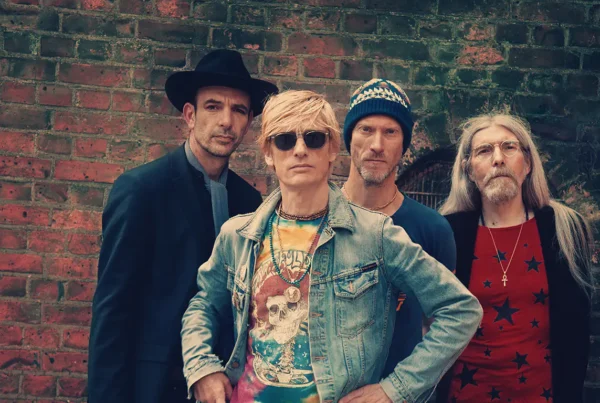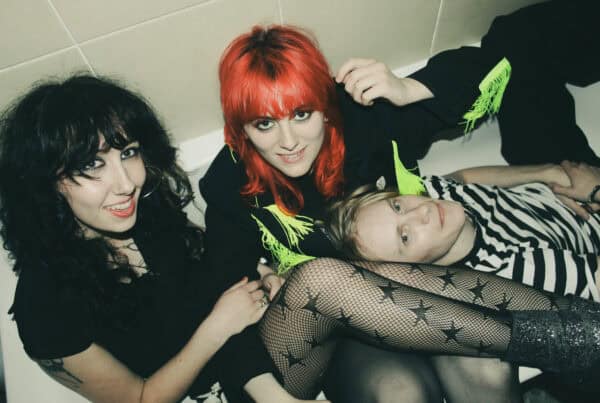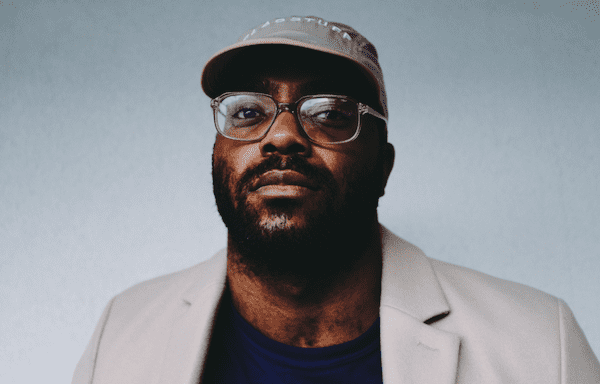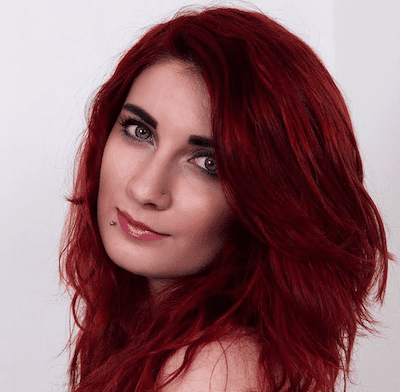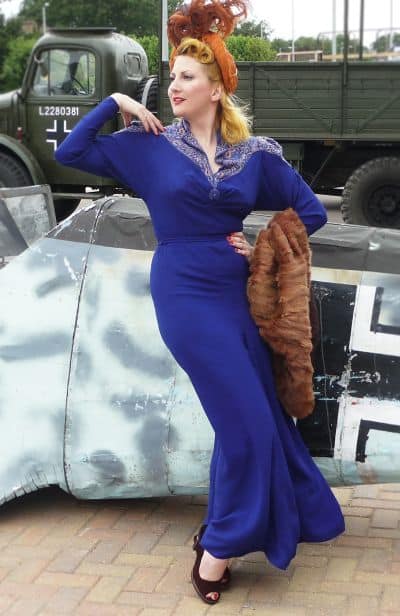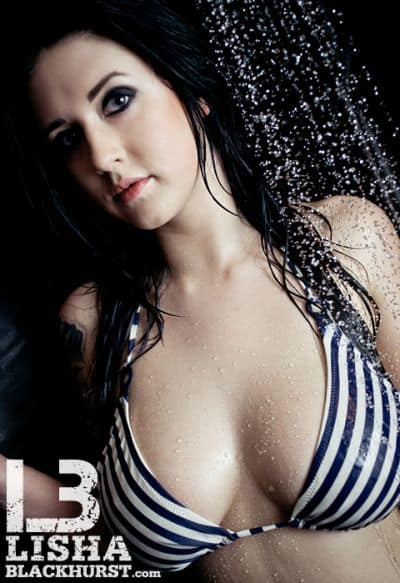The fashion industry is a labyrinth of both preconceptions, and certainly misconceptions. We are all aware of its brutal, fickle nature, and our lives are dramatically influenced by its projections of vanity and perfection – but what we don’t often realise is that the beautiful people we see have far more substance to them than what the camera can capture. Who could better attest to that than Evie Siddal?
[like_to_read][/like_to_read]
A freelance alternative model, keen to unify art with photography, and a part-time MA student of Victorian culture and literature, Evie is far more than just an image. Vocal about the reality of the modelling industry and the impact it has on both herself and her audience, Soundsphere Magazine thought there would be no finer role model for young people interested in the creative industry. It is rare to such an honest, intelligent discussion in such depth.
Represented by Models Plus Ltd, and having worked with a plethora of agencies and photographers, Evie entered into the industry when she was only 13 years old. “I think I was way too young. I was discovered by the same modelling scout who found Alexa Chung. We went around modelling agencies – the highest like Storm and IMG. They all kind of said “‘you are not right for us’. That basically meant you are too fat for us, essentially. They maybe weren’t so blunt but they took my mum aside and told her but didn’t quite say so much to me. So that really put me off it when I was younger. But then I befriended a photographer at university, my friend Matt. I got into it slowly and casually through him. I feel like I’m at that kind of age that I can be a lot more assertive and able to take on the kind of work I want to do.”
No matter who you are, being scrutinised and cast aside so ruthlessly – especially at such a young age when you are honing your image and getting to be comfortable in your own skin – would be devastating to your self-confidence. How can you be rejected so young and manage to be resilient enough to carry on? “I was, at the time, a very critical and socially aware kid. I was very aware of the pressures on young women looking a certain way – and I was angry about it. I rejected the modelling standards there was at the time, and that still exist today. The industry is getting a little better, but it’s still baby steps. It has a massive way to go still. Having been rejected for being overweight when I had a BMI of 17 or 18, I was kind of like ‘this is bullshit. I don’t want to be a part of an industry that believes this. This industry is wrong – not me.’”
Evie has many a time highlighted ineluctable flaws in the industry in terms of excluding people of a certain look, culture or background. We were curious to know what changes she’d like to see in the way models are selected, and the positive changes that are already noticeable since she’d been involved. “The industry is diversifying a little bit. There have been pushes from all corners and to make it more accessible. There’s been a recent story about Munroe Bergdorf, a transgender model, for example. She was originally rejected from L’Oréal. I think it was a campaign for people to speak out about racism and transmisogyny within the industry. It’s really good that she became the face of a ILLAMASQUA campaign instead. It’s good that the industry is becoming more diversified. It’s definitely not where it should be but it’s getting a little bit better. I definitely think that there should be models that are not the typical type: white, super skinny, completely abled bodied. Ideas around the standards of beauty are shifting a bit, but they should shift more. And people should be aware of just how much more difficult it is for someone who is marginalised, and how much harder they need to work.”
Evie gives the impression of a confident, comfortable and passionate young woman – but we were intrigued to know if this was always the case. One of the most admirable qualities about her is the candid nature with which she discusses her struggles with mental health, which was particularly prevalent in her life as teenager. “I had a really quite troubled time growing up actually. I had a super supportive family, but my mental health when I was younger was pretty horrendous. I was diagnosed as autistic aged 15, and so I struggled with being an outcast and having social issues concerning communicating with people. Then when I hit puberty I had issues with depression and anxiety. I spent a large proportion of my teenage years having next to no friends, and in secondary school I wasn’t able to go to my lesson because I was so anxious about it. I used to have my lessons with the kids who had behavioural problems and that made me be ostracised even more. That was a very weird time, and it is quite nice look back on it in a way that I accept that I still have all these issues to this day, but I have come so far. I very much struggled as a teenager. I was never really cool like you see on Skins where they were drinking taking drugs and having relationships. I was sat alone in a graveyard reading poetry.”
Evie’s honesty about her struggles as a teenager is something with which we can widely identify with, so if you’re someone reading this who can draw parallels between themselves and Evie’s experiences, and are in want of an understanding ear, then she has this to say to you: “You are welcome to contact me. I am on Twitter and Instagram if you want to contact me directly and ask me all about it. I’m really happy to give advice and be your nerdy goth agony aunt. I can do my best to help. The internet has some really good resources for its faults. For all the for and cat pictures there is some really good advice for living your life if you are a bit different.”
Another dimension to Evie that is refreshing is her support of the LGBTQ+ community, cultural alternatives and sexual liberation. This is reflected in her repertoire as a model, which includes nude, boudoir and fetish shots. We were keen to understand how, from Evie’s experience, society has come to change and develop in terms of embracing this newfound freedom to express your sexuality. “I think a big change was when I went to sixth form where peoples’ attitudes relaxed a little bit. I think secondary school is incredibly pressurised, and just as soon as everyone leaves and gets the little bit of freedom at six form they tend to embark on being their truer selves a bit more, and tend to evolve into much more accepting people. I received homophobic bullying in both primary and secondary, and it was only in sixth form that I feel people realised ‘maybe it’s okay not to be entirely straight’. Then I came to university. That was the biggest change for me. It allowed me to find a community of people that I fit into, and that was so important. It’s who you surround yourself with that’s the biggest thing.”
We were interested to know a little bit more about Evie’s world, and the kind of person she has evolved to be today. “I’m a massive nerd. When it comes to books I get it from both my parents since they are trained as teachers, but particularly my mother side. She always said that we are tenuously linked to Lewis Carroll. I have been reading books from a young age, I wrote an Alice in Wonderland fan fiction at the age of 5. I have still got it somewhere. Maybe one day someone might study it as my juvenilia or something. In terms of music, I think I get my broad knowledge of it from my dad, who was a DJ drummer for 30 years. At the moment I am into dark folk music. I love a good murder ballad I always have. I am really into trad folk being re done by modern musicians.”
As a successful model who has the ability to choose her line of work, we wanted to see if we could glean some advice from Evie for aspiring models reading this article. “It’s a super tough industry. Being in front of the camera is really hard. I assumed all my life that people love being photographed. Apparently not. You could be the most beautiful person in the world but you hate being in front of the camera because you would look so uncomfortable in all your photos and therefor you would be terrible at it. Unless the photographer is going for the ‘I wish I was anywhere else right now’ look it’s not going to work. I work mostly freelance. I do have an agency but a lot of my work comes from all the grafting and networking. Get a portfolio for yourself, which you need to be prepared at the start to build up for free. Also do a few trial photoshoots if you have any photographer friends. Build up a bit of confidence that way, and see if you are prepared to put in the time and effort to getting more work. It’s super hard. I can barely make any kind of living from it. I am studying part time so that helps too.”
Something that Evie said I think aptly encapsulates our conversation with her. “My long-term boyfriend has a saying: “If the sciences are what saves the word then the arts make it worse saving”.” Modelling, art, literature– they are all reflections of a beauty in the world that makes it worth living in. Evie contributes her particular brand of beauty to all of these and more – we hope our conversation with her has inspired you to see things a little differently, and aspire to something more.
Interview: Dom Smith | Words: Sophie Walker | Image: Jim Hansen

